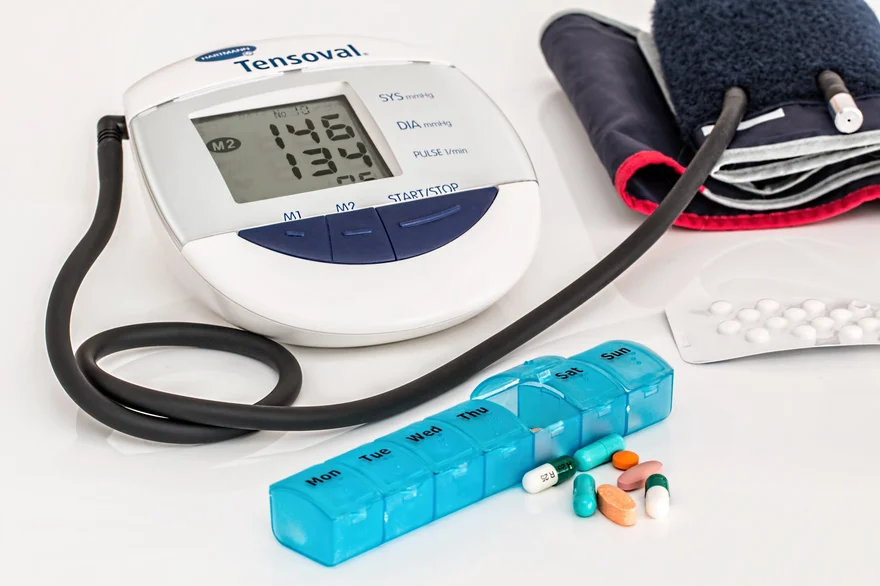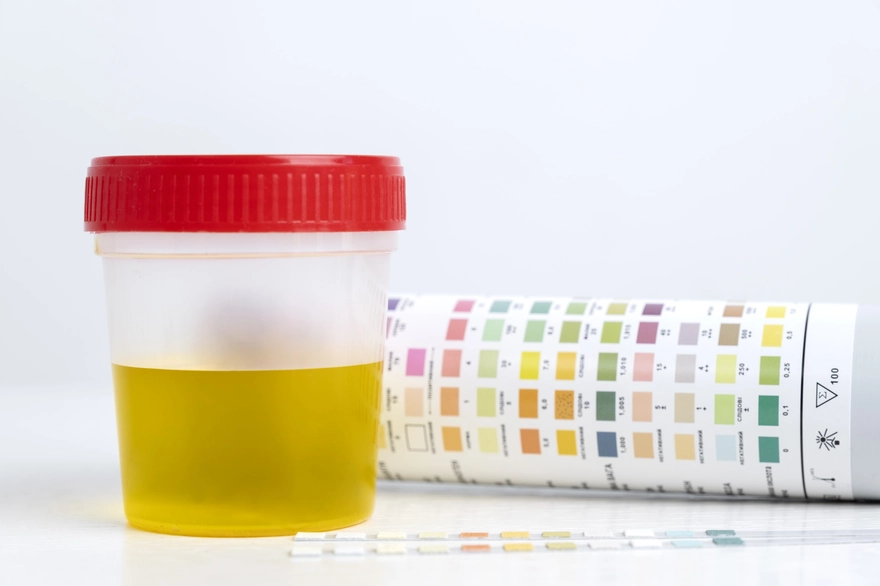Preventive Healthcare
Infective Endocarditis: Recognising This Heart Infection and Treatment Options
424 Views
0

What is infective endocarditis?
Infective endocarditis is an inflammation of the endocardium, which is the smooth membrane lining the inside of the heart chambers and covering the heart valves. This inflammation is typically caused by a bacterial infection, but it can also result from fungal infections in rare cases. The pathogens involved can enter the bloodstream through various routes, including dental procedures, skin infections, or intravenous drug use.
Once in the bloodstream, these infectious agents can attach to the heart's valves or endocardium, leading to the formation of clumps known as vegetations. These vegetations consist of bacteria, fungi, proteins, and blood cells. If left untreated, the infection can damage the heart valves and surrounding tissues, resulting in severe complications such as heart failure, stroke, or organ damage due to blocked blood flow.
Infective endocarditis symptoms can include fever, fatigue, and shortness of breath, highlighting the importance of early diagnosis and treatment. Prompt medical attention is essential to prevent serious health risks associated with this condition.
What are the symptoms of infective endocarditis?
Infective endocarditis symptoms can vary widely and may develop suddenly or gradually. Some common infective endocarditis symptoms include:
- Fever and chills: Often one of the first signs
- Night sweats: Frequent sweating, especially at night
- Fatigue: A general feeling of tiredness and weakness
- Joint and muscle pain: Discomfort or pain in various muscles and joints
- Loss of appetite and weight loss: Reduced desire to eat leading to unintentional weight loss
- Shortness of breath: Difficulty breathing or feeling breathless
- Chest pain: Discomfort or pain in the chest area
- New or worsening heart murmur: A change in the sound of the heartbeat
- Skin changes: Such as broken blood vessels, painful red or purple bumps, and painless flat red spots on the palms and soles
- Blood in urine: Visible blood when urinating
- Petechiae: Small red spots on the skin
- Roth spots: Bleeding in the retina with a central area of clearing
Recognising these symptoms early is essential for prompt diagnosis and treatment, which can significantly improve patient outcomes and reduce complications.
What are the causes of infective endocarditis?
The primary infective endocarditis causes involve bacteria entering the bloodstream and attaching to the heart valves or endocardium. Common sources of these bacteria include dental procedures or poor dental hygiene that can lead to minor injuries in the mouth or gums, allowing bacteria to enter the bloodstream.
Other infective endocarditis causes can include surgical interventions, implanted cardiovascular medical devices like pacemakers or prosthetic heart valves, and chronic skin disorders or infections, including burns. Intravenous drug use also poses a significant risk, as it can introduce bacteria directly into the bloodstream.
In rarer cases, fungal infections can cause infective endocarditis, particularly in individuals with weakened immune systems, necessitating prompt medical intervention.
Who is at high risk for infective endocarditis?
Certain groups are at a higher risk of developing infective endocarditis, such as:
- People with certain heart conditions like valve disease, congenital defects, or prosthetic valves
- Older adults due to age-related changes in heart valves
- Intravenous drug users, as unclean needles can introduce bacteria
- Those with weakened immune systems, including people with HIV or undergoing long-term medical treatments
- Individuals with poor dental health
- Those with a long-term central venous line
- People who have previously had endocarditis
How to diagnose infective endocarditis?
Infective endocarditis diagnosis requires a comprehensive approach, including evaluating the patient's medical history, conducting a thorough physical exam, and performing various diagnostic tests.
- Medical History and Physical Exam: Healthcare providers will inquire about recent illnesses, any potential exposure to infectious agents, and known risk factors, such as a history of heart conditions or intravenous drug use. A physical exam will check for signs of infection, including fever and heart murmurs, as well as other complications related to heart problems.
- Tests: Blood tests are essential for detecting infection and identifying bacteria or fungi present in the bloodstream. Chest X-rays are conducted to evaluate the heart and lungs, while heart tests like echocardiograms help examine the valves and lining of the heart. Blood cultures are also performed to identify the specific pathogens responsible for the infection, guiding appropriate treatment.
What tests will be done to diagnose infective endocarditis?
To diagnose infective endocarditis, your doctor will likely recommend several critical tests to confirm the presence of the infection and evaluate its impact on your heart.
- Blood Cultures: This test is crucial for identifying the specific bacteria or fungi causing the infection. Multiple blood samples are taken over a period to ensure accurate results.
- Echocardiograms: These imaging tests allow visualization of the heart valves and can detect vegetation (clumps of infection) or any damage caused by infective endocarditis.
- Chest X-rays: X-rays help assess the heart and lungs for any abnormalities that may indicate complications arising from the infection.
- Electrocardiogram (ECG): An ECG evaluates the heart's rhythm and electrical activity, which can be affected by infective endocarditis.
- Physical Examination: During this examination, healthcare providers will check for new heart murmurs, Roth spots in the eyes, and petechiae (small red spots) on the skin, which are important indicators of the disease.
What are the treatment options for infective endocarditis?
Infective endocarditis treatment typically involves a combination of approaches tailored to the individual patient.
- Antibiotic Therapy: The cornerstone of treatment is intravenous antibiotics, administered for several weeks to effectively eradicate the infection. The choice of antibiotic is determined based on the type of infection identified through blood cultures and the patient's overall health. This targeted approach helps ensure that the right medication is used against the specific infective endocarditis causes.
- Surgical Intervention: In some cases, surgery may be necessary to address complications from the infection. Surgical options include replacing damaged heart valves, removing infected tissue, or repairing other structural issues within the heart.
- Supportive Care: Patients may also require supportive care, including monitoring for complications and managing symptoms such as fever and pain. Overall, early diagnosis and appropriate infective endocarditis treatment are crucial for improving outcomes and reducing the risk of severe complications.
What can I expect if I have infective endocarditis?
If you are diagnosed with infective endocarditis, you can expect:
- Hospitalisation for IV antibiotic treatment, usually lasting several weeks
- Close monitoring of your heart function and overall health
- Possible surgery if there is significant heart valve damage or other complications
- Follow-up care after discharge to ensure the infection has cleared and to manage any long-term effects
When to see a doctor?
Seek medical attention immediately if you experience:
- Persistent fever
- Shortness of breath
- Chest pain
- Fatigue
- Skin changes
- Any other symptoms of infective endocarditis, especially if you have risk factors
Early diagnosis and treatment are crucial for preventing serious complications and improving outcomes.
Conclusion
Infective endocarditis is a serious heart infection that requires prompt medical attention. If you suspect you may have the disease, don't hesitate to consult your healthcare provider for a thorough evaluation and personalised treatment plan.
At Metropolis Healthcare, we offer comprehensive diagnostic services, including blood tests and cultures, to help detect infective endocarditis accurately. Our team of skilled phlebotomists can conveniently collect your blood samples at home, which are then processed in our state-of-the-art labs. With Metropolis' reliable results and patient-centric approach, you can trust us to support you in your journey towards optimal heart health.























 WhatsApp
WhatsApp